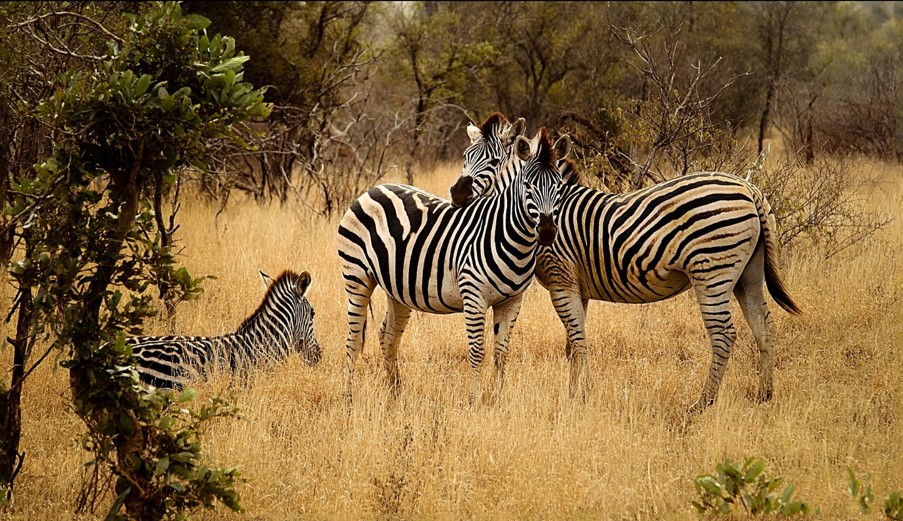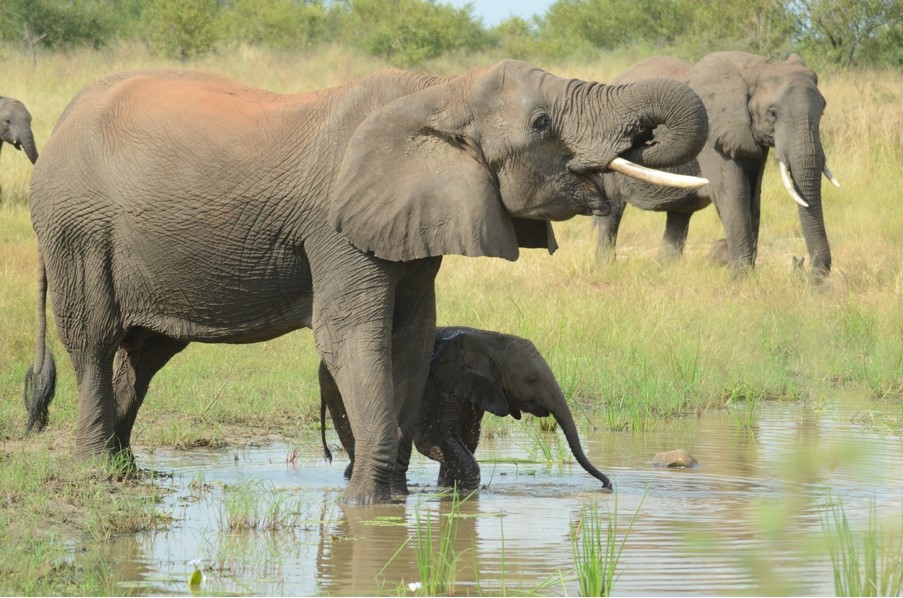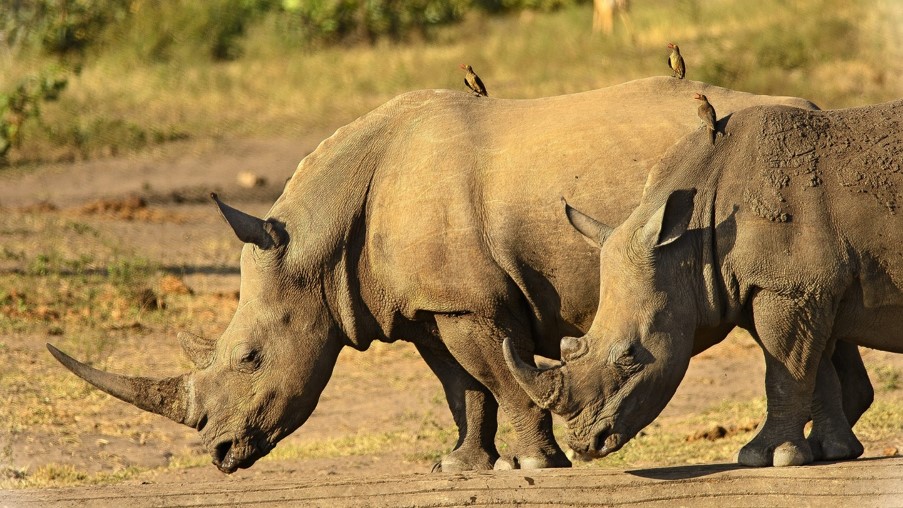What is wildlife conservation?
It’s the practice of protecting animal species, plant species, and their habitats. Wildlife conservationists are the people who make this passion into their career and work day-to-day, helping to save the lives and habitats of animals.
The mission of wildlife conservation is to aid animal and plant species' survival whilst educating people on sustainable living alongside other species. Wildlife conservation applies to all animal and plant species and habitats; however, the focus is likely to be on those that are classed as ‘endangered’. This means their species is under the direct threat of extinction, usually due to human activity. Shockingly, the size of our planet’s wildlife populations has now dropped by 68% since 1970.
Human consumption of the earth’s natural resources is at such a rapid rate that it’s sadly too fast for many wildlife species and their habitats to adapt to, resulting in increasingly declining levels of biodiversity and rising threats of extinction. Typical threats to wildlife resulting from human activity include the destruction of land/natural habitat, poaching, hunting, fishing, pollution and climate change.
A career in wildlife conservation can be rewarding, exciting and meaningful. There is a range of different options for careers in conservation, but the idea behind them all is the same: to help improve the lives of animals. What’s better than a career where your sole job is to save the lives of animals?
If this sounds like a mission that resonates with you, you may be sitting there wondering how to get a job in wildlife conservation. Read on to find out how you can embark on a career in the conservation of wildlife!

Why choose a career in wildlife conservation?
Wildlife conservation careers are more important now than ever, with the increasing destruction of global habitats and threats that animal and plant species face. Choosing a career in wildlife conservation is personally rewarding and can contribute to making a huge impact on benefitting the planet and living on it!
Can conservation help to save the planet? Yes! Conservation involves protecting and ensuring the safety of animals and their habitats. In doing this, you are helping to maintain an increased level of biodiversity on the planet and preserve species’ habitats. Increased plant species and habit preservation mean that there is more natural plant life to combat the rising levels of CO2 in the atmosphere and combat the effects of climate change.
What does a career in wildlife conservation involve?
Careers in wildlife conservation are varied, dynamic, hands-on, thought-provoking, inspiring, and challenging. They require individuals who are passionate, proactive, resilient and driven.
Wildlife conservation jobs can cover a variety of tasks. This could be working directly with animals – caring for them, feeding them, cleaning their habitat, monitoring them etc. This may be at a zoo, a safari park, or even overseas. Roles can also include research and fieldwork; this can be to monitor animal species in their own natural habitats and develop solutions for ensuring their continued wellbeing.
Wildlife conservation jobs are very likely to be practical and hands-on; however, this isn’t always the case! Conservation jobs can also be behind the scenes, working within a charity or organisation that supports wildlife. This can include desk work, such as reporting, analysis, research, etc. Careers in wildlife conservation are often interdisciplinary, and they can change in nature from one day to the next. This might involve fieldwork one day, report-writing the next, then public educational speaking, teaching, etc. Jobs in conservation are demanding but hugely varied roles!
Conservation can be a very competitive field to get into, so knowing how to stand out is vital. Ensuring you have the right experience, and transferable skills for this career path will go a long way. These include: researching your chosen career, having the right qualifications, training, volunteering experience, work experience, the passion for making a difference, the right mindset and of course a personal commitment to improving the lives of animals!

What are the different types of job roles as a wildlife conservationist?
So, you may be wondering what the different job roles as a wildlife conservationist entail? Here we have listed some of the most common wildlife conservationist job titles and what they involve:
Zookeeper
This is a very hands-on and demanding role. Zookeepers are responsible for the day-to-day care and welfare of animals kept in zoos and safari parks. The role is primarily ensuring that these animals are kept physically and psychologically healthy. To work as a Zookeeper in the UK, it is preferred to obtain an Ofqual regulated Level 3 Diploma that includes practical hands-on experience. Our Level 3 Diploma in Zookeeping qualification is incredibly popular and includes 2 weeks of practical training in a Zoo.
Wildlife Campaigner
This could be within an existing organisation, charity or NGO that works to support animals. This is the perfect role for someone who wants to work in wildlife conservation but doesn’t want to get their hands dirty! Tasks can involve report-writing, research, campaign planning and management and educating the general public.
Zoologist
Zoologist study and research animals scientifically, and they can be employed in various wildlife, conservation and zoo roles.
Wildlife Researcher
This role is likely to require a lot of fieldwork and a high level of attention to detail. This role involves researching species and habitats, analysing data and providing ideas and insight into making improvements. This role could be based abroad, where there are many opportunities for wildlife research further afield.
Wildlife Photographer/Filmmaker
Got an eye for photography? This role is perfect for anyone looking to work in conservation but wants to maintain their creative flair! This role involves capturing wildlife and habitats on film, producing images, short films and other educational materials which can be used to spread the message of wildlife conservation.
Wildlife Ranger
Many of the tasks involved as a wildlife ranger are very similar to a zookeeper's role; however, the work is based in a safari park instead of in a zoo.
Habitat Designer
A career as a habitat designer is a great option; it is a fast-growing career as more and more zoos, safari parks and sanctuaries increasingly strive to improve the animals' environment under their care.
How do I start a career in wildlife conservation?
Securing a job in wildlife conservation can sometimes be tricky, as it is a very competitive field. However, there are many things you can do to help yourself stand out amongst the crowd, and here we’ve listed a few ideas:
Volunteer
Volunteering is an excellent way of building up practical experience. Employers love to see previous practical experience and training; this is particularly vital in this line of work as it normally involves such a hands-on and practical role. Volunteering opportunities can be found in the UK, at zoos or wildlife sanctuaries, or done overseas. Volunteering abroad is a fantastic way to experience conservation in a new environment with various species. If you are interested in getting a job in a wildlife sanctuary, then volunteering is a great place to start. Many sanctuaries rely on volunteers and public donations, so they may be more likely to have some volunteering roles available, and it is definitely worth enquiring about.
Take a course
Taking an accredited and recognised course is one of the best ways to improve your employability for a career in wildlife conservation. A blend of practical training and theoretical knowledge will give you an all-round knowledge and understanding of the field and required roles. At Animal Courses Direct, we are the largest course provider in animal, marine and wildlife conservation courses. We offer a wide range of courses over various topics to support you on your way to becoming a wildlife conservationist.
Why not visit the animal course website and visit the wildlife courses page? These courses focus on a range of species and topics related to wildlife and conservation, providing perspectives that can help you build a sustainable future for wildlife. Our wildlife courses are recognised and accredited and enable the professional development of safari-park workers, zoo workers, or anyone wishing to participate in African Wildlife conservation directly.
Alternatively, to view our full range of conservation courses, click here.
Know your stuff
Make sure you have fully researched and investigated the field of wildlife conservation and the role you are interested in. Make sure it’s the right role for you, and you have a commercial awareness for the current ecological and environmental issues affecting wildlife, conservation and habitats. This will improve your chances of successfully standing out, as you will have a better current understanding of the modern-day problems animal species, plants, and habitats face.

If you are interested in a career in wildlife conservation but still have some questions, Animal Courses Direct offers great support with specialist animal professionals and can help advise you on the best way to get into animal and wildlife conservation.
Also, if you adore animals, you can keep track of all upcoming animal awareness days and events with our FREE calendar! Download it here.
















